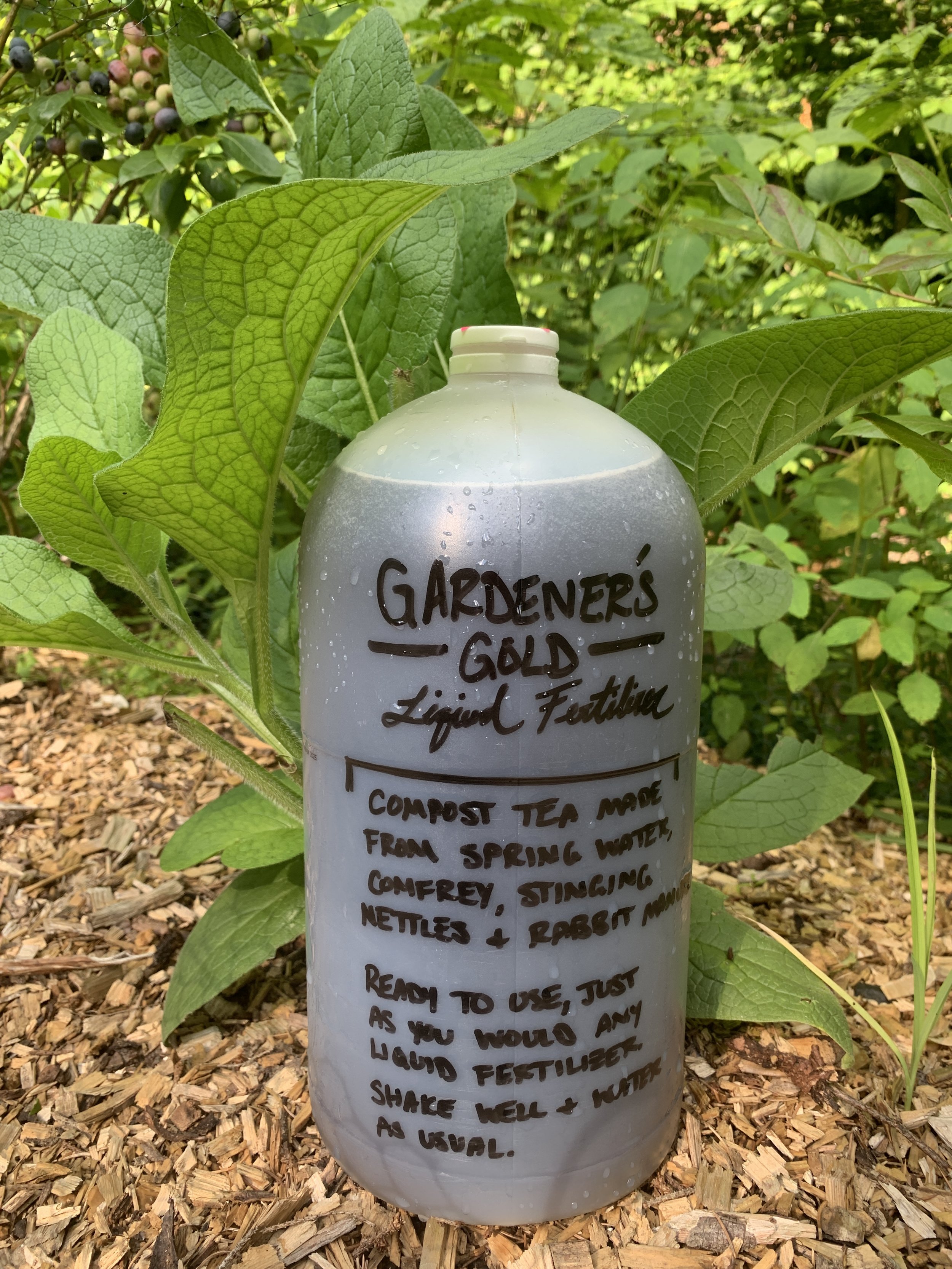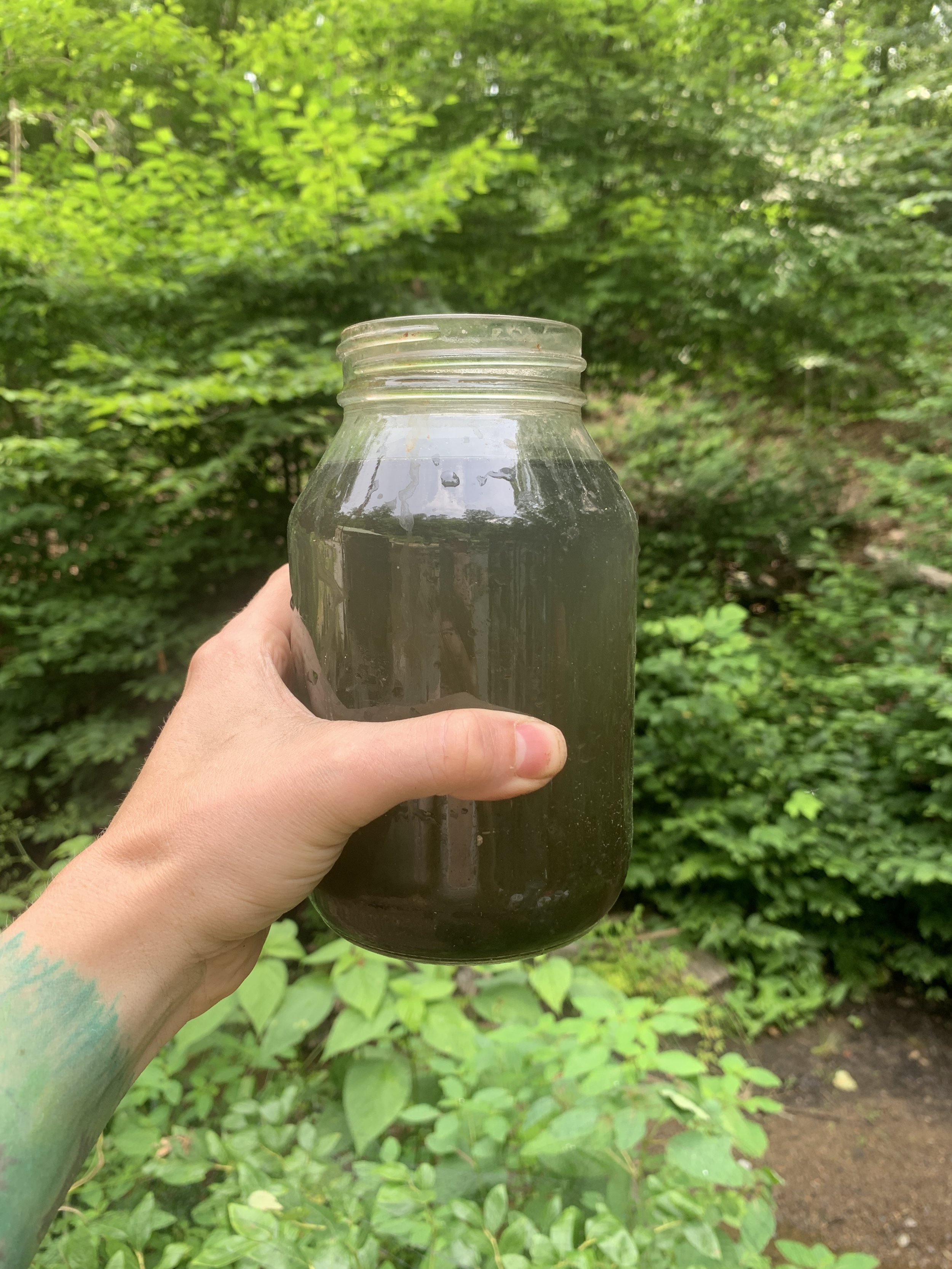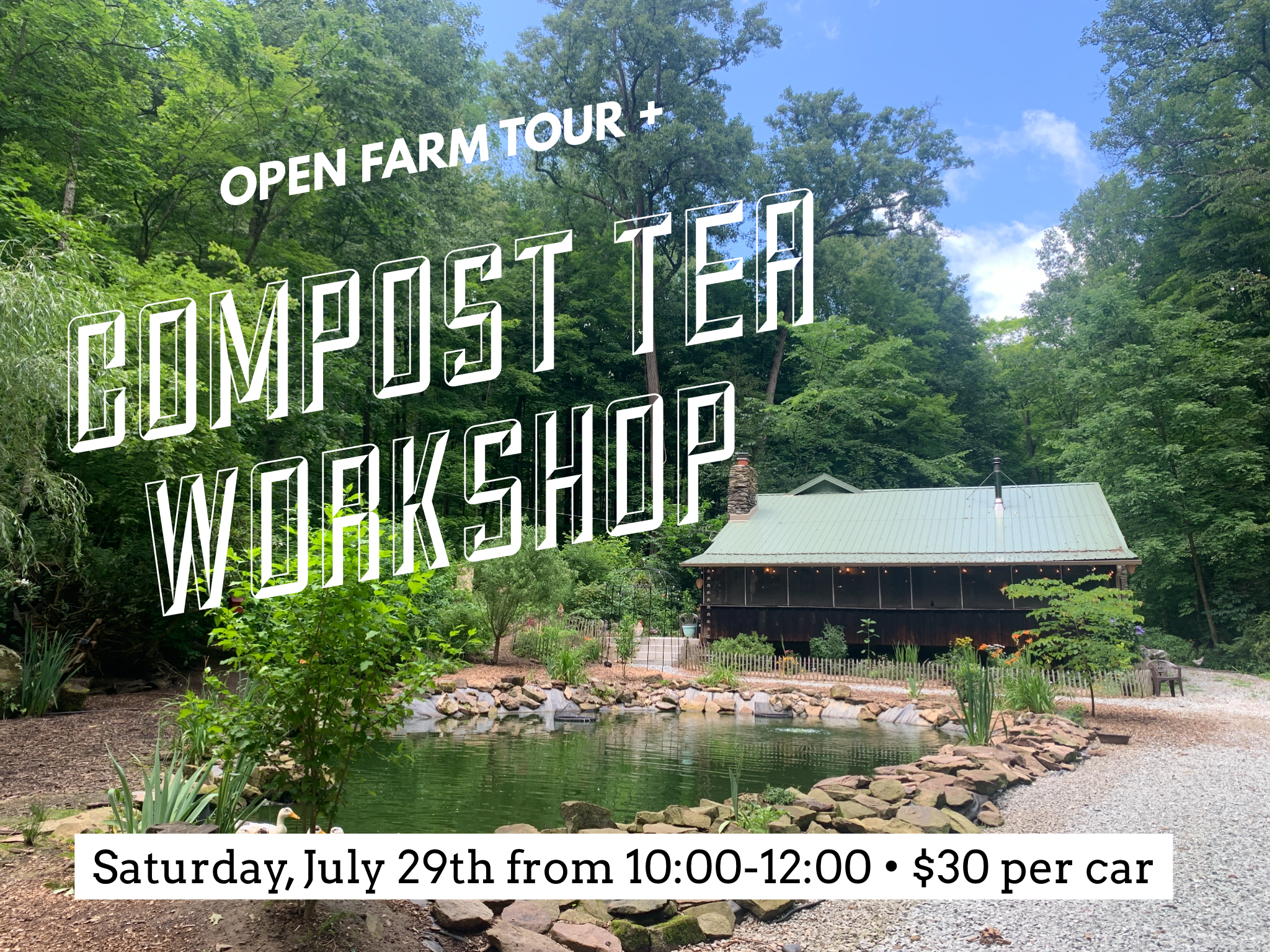How to make your own organic liquid fertilizer
While Miracle Grow or other store bought liquid fertilizers might be convenient, have you ever considered making your own liquid fertilizer…for free!?
With a little know how, a bucket and some water, you can create extremely nutrient dense and bioavailable liquid fertilizer, often called: compost tea.
Making “tea” can be as simple or as complex as you want it based on what you have available and how much you’re hoping to make. Pretty much any type of green leaf or weed stores useful nutrients that will break down when soaked in water. Some are better than others, but even grass clippings will do!
The 3 main ingredients in store bought fertilizer are nitrogen, phosphorus and potassium (NPK). When experimenting with your own homemade fertilizer, you won’t know the exact NPK ratio, but it’s helpful to know which organic materials are highest in nitrogen, phosphorus or potassium so that you can create what you need most.
Nitrogen (N) encourages leaf growth, phosphorus (P) promotes root growth and potassium (K) is great for encouraging your plants to blossom and to produce fruit.
If you’d like to achieve a certain goal with your fertilizer, the following list is a helpful reference point for the most useful and the most common plants, weeds or materials you might utilize. My top 5 recommendations on this list are all dynamic accumulators meaning that they draw up high quantities of nutrients and trace minerals into very bioavailable forms in their leaves and tissues. I am a HUGE fan of comfrey, if you don’t know about it’s many amazing benefits, you should!
• Comfrey: dynamic accumulator, very heavy in trace minerals, extremely productive to use in large quantities. N1.8 : P5 : K7.1
• Stinging Nettles: dynamic accumulator, very easy to grow, tricky to harvest. N2 : P0 : K5
• Yarrow: dynamic accumulator, medicinal value, beautiful foliage and flowers (white, yellow, pink or red),
• Dandelion: dynamic accumulator, common and easy to find, high in potassium
• Chickweed: dynamic accumulator, common and easy to find
• Plantain: prolific ‘weed,’ wide range of nutrients
• Fresh grass clippings: N4 : P1 : K2
• Banana peels: high in potassium
• Manure: if using a ‘hot’ compost such as chicken manure, be sure to soak at a ratio of at least 1 part manure to 3 parts water
• Kitchen vegetable scraps: readily available and easy to breakdown, especially if chopped.
To create your fertilizer concentrate, use a 5 gallon bucket with a lid. Pack it with whatever green materials you have on hand. Manure should be soaked at a ratio of at least 1:3. You can weigh your green materials down with a rock if you’d like. Cover to the top with spring or rain water and add a loose-fitting lid. (Do NOT use any water that contains chlorine as it will kill off many of the microorganisms and nutrients you are trying to encourage.)
Allow your mixture to soak for anywhere from 3 days to 3 weeks. The longer, the better if you would like to extract the most nutrients. After a week, as the plants rot more fully, the mixture should look very dark or black and smell absolutely noxious. When you’re ready to use it, strain out the organic matter and bury the waste in your garden or compost it.
If you would like to use it early after 3 days, you can use it straight without diluting. If you have left it a week, dilute at a ratio of 1 part tea to 8 parts water. 2 weeks or more concentrate should be diluted at 1 to 15. Always be cautious using your fertilizer on baby plants, as it may be too strong.
An example of straight, undiluted nettle concentrate. When fully fermented, it should look very dark or even black depending on your materials.
Concentrate or diluted fertilizer can be kept in containers with loose fitting lids, as it may continue to ferment. Fermentation is just a natural byproduct and only improves its beneficial value.
That’s pretty much it! I always have at least a few buckets going behind my chicken coop, one with nettles, one with comfrey and one with manure. I like to mix and match and experiment, and I especially love having it on hand for free!
If you’d like to learn more or join in a hands-on make-and-take workshop, save your space for our upcoming Open Farm Tour + Compost Tea Workshop!


